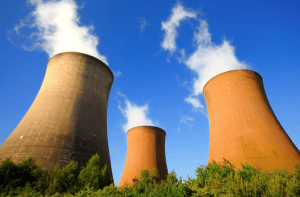How to unleash the enormous benefits of Ghana’s Nuclear Power Programme
 Nuclear technology is a major transformational resource for any economy whose people prepare, accept and actively participate in its development, implementation and sustainability.
Nuclear technology is a major transformational resource for any economy whose people prepare, accept and actively participate in its development, implementation and sustainability.
Nuclear technology opens wider doors for enhanced industrialisation, job creation, improved healthcare, clean energy, energy security, enhanced agriculture, research and development among others.
This cannot be achieved if stakeholders remain in doubt and have limited appreciation of the great potentials that this emerging technology stands to offer, as it has already led to the socio-economic liberation of many countries in Asia, Europe and the Americas.
There is, therefore, the urgent need for active stakeholder participation in Ghana’s Nuclear Power Programme to help unleash its enormous benefits.
Professor Benjamin Jabez B. Nyarko, the immediate past Director-General of the Ghana Atomic Energy Commission (GAEC), at a media training in Accra, indicated that nuclear power is urgently needed if Africa hopes to radically decrease its carbon emissions credit and rapidly transform its industries to favourably compete with others globally.
Studies have shown that developed countries such as the United States of America, Great Britain, Japan, and South Korea had and are still utilising nuclear technology in health, education, agriculture, energy generation and industry to transform human life.
Nuclear technology is being used to improve crop yields, food preservation for export and most importantly, for generating cheaper and sustainable electricity supply for industrialisation.
Fortunately, Ghana owns a small nuclear research reactor being hosted within the GAEC since 1994, and it has been safely utilised for research and educational purposes, but not for generating electricity.
Prof. Nyarko explained that the Commission had peacefully utilised its nuclear research reactor to achieve greater breakthroughs in areas such as cancer research, GAMMA irradiation for preservation of food and other products to enhance their shelf life, as well as for the calibration of health and industrial equipment including X-Ray machines, scanners and fuel pumps.
Despite the enormous benefits to be derived from nuclear technology, there has been strong opposition from political, academia, scientific, environmental and public quarters towards Ghana’s public announcement to opt for nuclear power as an alternative source for its energy mix.
Those opposing the idea are citing key issues like safety, security and affordability in operating a Nuclear Power Plant, raising questions such as Ghana’s readiness or ability to manage any disasters, preservation of radioactive sources and the spent fuel from the plant.
However, Prof. Nyarko, also the Board Chairman of the Nuclear Power Ghana (NPG), says he disagrees with the general negative perception, myths and fear surrounding the mention of “nuclear”.
He noted that nuclear power is safer than most energy sources like coal, which has substantial volumes of the radioactive element; uranium and thorium; while other environmental factors like tarred roads emit higher radiation compared to nuclear energy.
“Like all other energy sources, nuclear power has its advantages and disadvantages, but the benefits are greater, since it produces energy via nuclear fission rather than chemical burning, thereby generating base load electricity with no output of carbon, compared to fossil fuel,” he explained.
Therefore, having a better understanding of the nuclear power technology would guarantee the smooth implementation of the country’s Nuclear Power Programme to the benefit of all Ghanaians.
Prof. Nyarko urged the media to increase their advocacy, be consistent and deliberate in their education and information sharing to build public trust in the ongoing processes towards the construction of Ghana’s first Nuclear Power Plant (NPP) by 2030.
Dr Stephen Yamoah, the Executive Director of NPG, said the operation of an NPP would bring transformation to the country through the provision of affordable electricity in a safe and environmentally friendly manner due to its zero-carbon emission rate.
He emphasised that nuclear power would enable Ghana’s achievement of targets under the Sustainable Development Goals Seven – ensuring access to affordable, reliable, sustainable and modern energy for all – with the goal 13 encouraging the focus on combating climate change and its impact.
Dr Yamoah said Ghana had successfully satisfied all the 19 infrastructural requirements of the International Atomic Energy Agency (IAEA) for embarking on a Nuclear Power Programme.
The country has also completed its first phase milestone approach, which stresses on high safety and safeguard issues, and currently progressing in the phase two of the project.
In the field of nuclear, high premium is placed on waste management and disposal by strictly adhering to all IAEA standards and regulations, hence Ghanaians must feel safe and secure with this technology.
By Christabel Addo
Source: GNA
